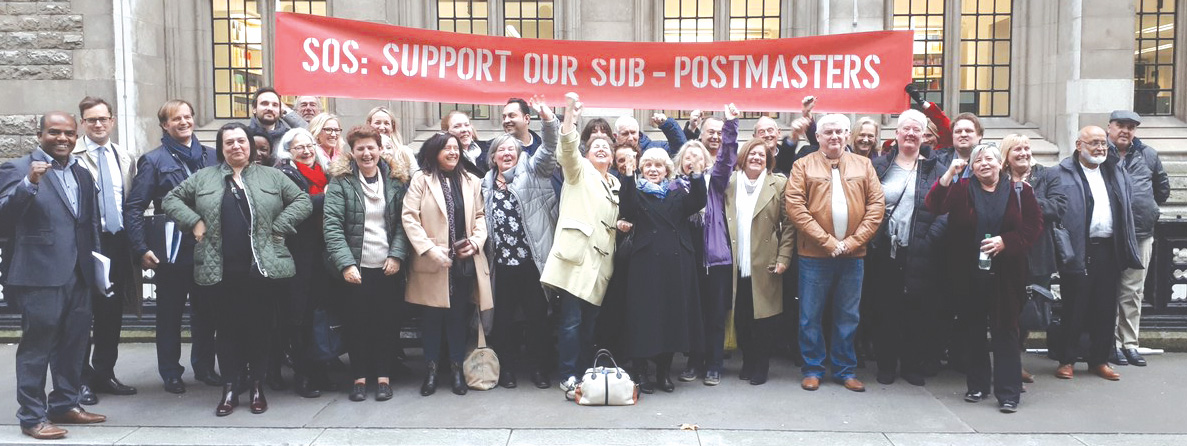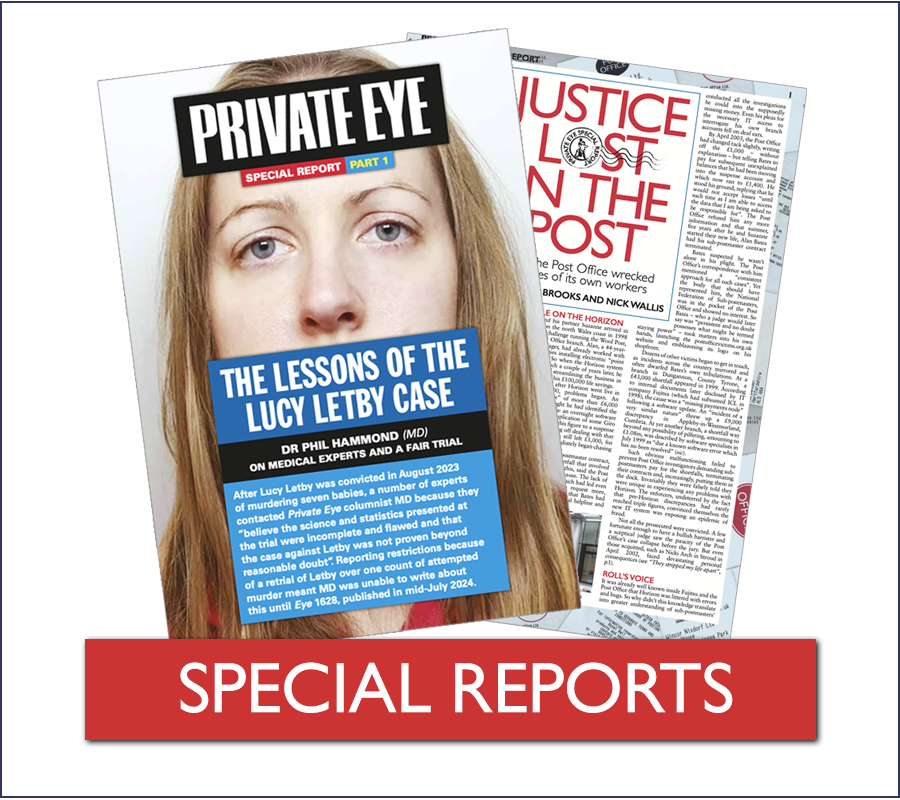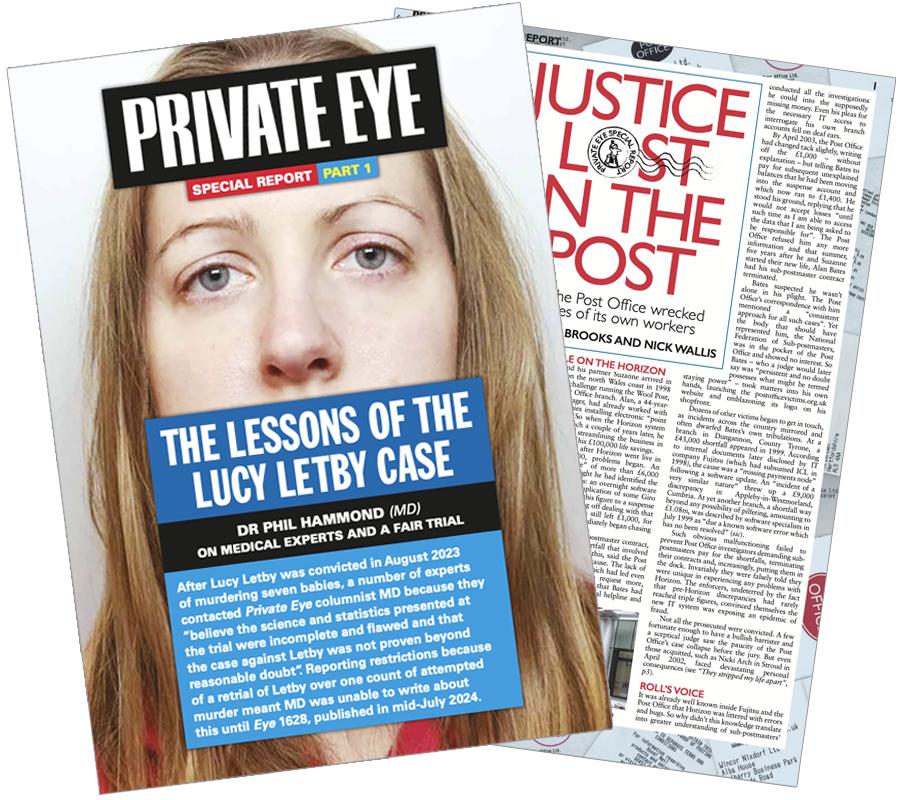
Redressing down
Post Office Scandal , Issue 1653 BEFORE this week's critical report on Post Office compensation from public inquiry chair Sir Wyn Williams, the government made a big deal of having hit the £1bn mark in redress payments to sub-postmasters and staff affected by the Post Office Horizon IT scandal.

Behind the big number, however, is the question of whether the victims are getting fair redress.
Legal quibblers
More than half (£559m) of the £1.04bn paid out by the end of May was distributed under the Horizon Shortfall Scheme, which is for those who were not convicted but suffered hardship.
Nearly 80 percent of this sum has been paid out in the past year, after a fixed £75,000 offered to eligible sub-postmasters in the wake of the ITV drama prompted thousands more to come forward.
Many of these people deserve a larger sum but are put off seeking it by the arduous, legalistic process. Although not prosecuted, they lost large amounts, in some cases over two decades and with devastating personal consequences.
Yet Post Office lawyers continue to quibble with those who do want more, refusing to put victims in anything like the financial position they would have been in without the Post Office IT scandal.
At the last count, there were 299 people who submitted claims under the Horizon Shortfall Scheme before March 2021 whose redress had yet to be agreed. The rate of agreements is running at just six per month; 345 victims of the scandal have reportedly died without receiving redress.
Sum mistake
The largest payments, meanwhile, are owed to those with convictions overturned by the courts or through legislation in May last year. They are offered a flat £600,000 without going through a detailed claim, or they can argue for a larger sum.
The average payment in 71 cases overturned in court (ie before the ITV drama aired) where redress was agreed is £850,000. This is in line with early estimates: in 2022, then postal services minister Paul Scully told MPs the more than 940 convictions then known could cost £780m, so an average of around £825,000.
There have been 536 applications by those exonerated through the legislation. Of these, 382 cases settled for the £600,000. Many deserved more: the £600,000 looks like a well-pitched number to minimise pay-outs – just enough to look preferable to an intrusive and retraumatising examination of their story.
The Post Office could be more generous and still keep the redress bill within the £1.8bn allowed for by chancellor Rachel Reeves last year – but that would take Thomas and his boss, business secretary Jonathan Reynolds, to stop bigging up modest efforts thus far and tell them to be.
Corporate bullsh-IT
Meanwhile, it is now 18 months since the European boss of Fujitsu, which supplied the crap Horizon system and whose officials lied to sub-postmasters and to courts about it, accepted moral responsibility and said the company would cough up. It also promised to help the children of sub-postmasters whose lives have been blighted. Yet it still hasn't handed over a bean or lifted a finger for them.
What it has done is churn out some of the most emetic guff on record about playing the corporate good guy. "Net Positive", runs the latest drivel, "is a concept that aims to go beyond reducing the negative impact of corporate activities in order to create a positive impact…" The company, working with an arm of the Economist magazine called Economist Impact, says it has "incorporated the realisation of Net Positive into our corporate strategy as we aim to contribute to solving societal issues".
Here's a "net positive" idea: pay £1bn to the sub-postmasters!
More top stories in the latest issue:
QUANGO-ING, GOING, GONE!
The health secretary's bonfire of the health quangos will see an extraordinary 201 different bodies shut down in a 10-year plan to streamline the NHS.
CLUELESS…
Forensic science services are such a shambles that in the four years to last September, 30,552 prosecutions were dropped because vital evidence was lost.
ZONE OF UNINTEREST
Ignorance reigns in Whitehall over security for the Teesside freeport's high-risk "customs zone", provided by a firm with serious organised-crime connections.
PENALTY KICK
Britain's largest women's prison, privately run Bronzefield, has seen a fourfold increase in fines for poor performance over the past five years.
SHELL SHOCKERS
No surprises that a deadline for overseas territories to produce registers of who owns shell companies in their jurisdictions has passed with most doing nothing.
BURNING ISSUES
Tree-burning power company Drax has finally found a new chief financial officer: Frank Lemmink, formerly of Shell. He'll need some friendly advice…
TOXIC TAILINGS
Northern Ireland's economy minister has dished out seven new licences to mining firms despite widespread opposition, including from his own party.
CARELESS CARE
Regulator Ofsted says it has seen a "worrying number of children" being placed in supported accommodation who simply shouldn't be there.



































